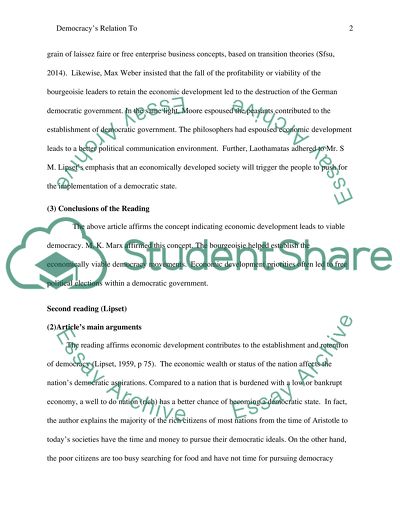Cite this document
(“How democracy is related to economic development Essay”, n.d.)
How democracy is related to economic development Essay. Retrieved from https://studentshare.org/social-science/1677067-how-democracy-is-related-to-economic-development
How democracy is related to economic development Essay. Retrieved from https://studentshare.org/social-science/1677067-how-democracy-is-related-to-economic-development
(How Democracy Is Related to Economic Development Essay)
How Democracy Is Related to Economic Development Essay. https://studentshare.org/social-science/1677067-how-democracy-is-related-to-economic-development.
How Democracy Is Related to Economic Development Essay. https://studentshare.org/social-science/1677067-how-democracy-is-related-to-economic-development.
“How Democracy Is Related to Economic Development Essay”, n.d. https://studentshare.org/social-science/1677067-how-democracy-is-related-to-economic-development.


